Funny Thing Happened on the Way to the Forum, A (1966)
“Poor little moth — she fluttered too near my flame.”
|
Synopsis: |
Response to Peary’s Review: With all that said, I’ll admit to not being a fan of this beloved cult favorite — primarily due to my distaste over how objectified, sexualized, and/or demonized every single female character is. Could Jessel’s pasty make-up: — or that of her mother (Beatrix Lehmann) — be any more garishly witch-like? Could beautiful women’s bodies be any more fondled, used as dining tables, or assumed to be merely objects for male pleasure (or reproduction)? However, things become more enjoyable (for me) once Greene (giving “a funny performance”) arrives on the scene; his narcissistic rhetoric is consistently laugh-out-loud humorous:
Buster Keaton, in his final role before dying of cancer, seems literally lost during most of the film (for good reason), but has a nice moment at the end when his character suddenly becomes a pivotal part of the storyline. All film fanatics should check this film out at least once, and more often if it tickles your particular fancy. Redeeming Qualities and Moments:
Must See? Categories
Links: |
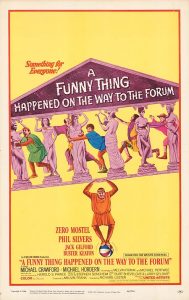
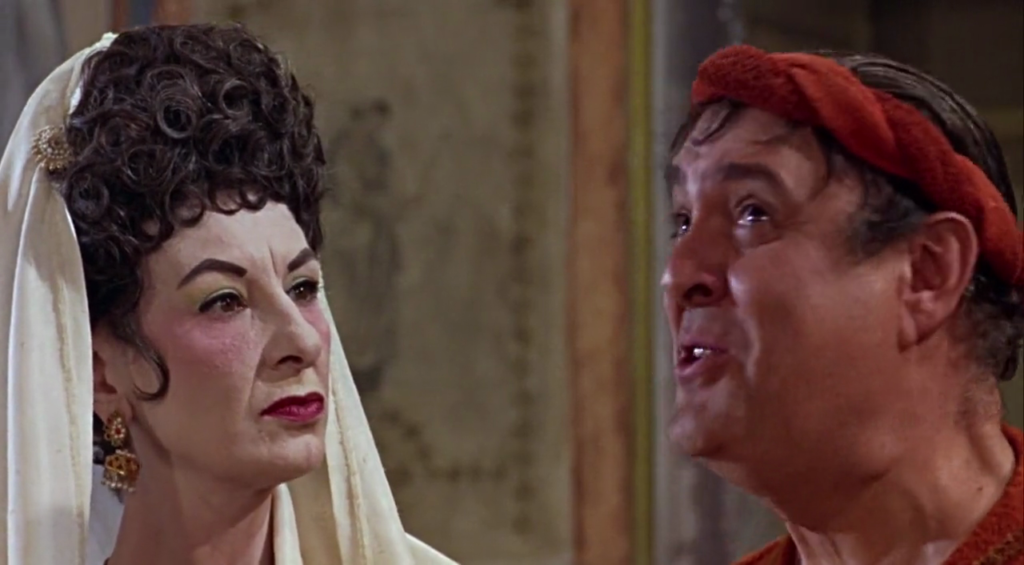
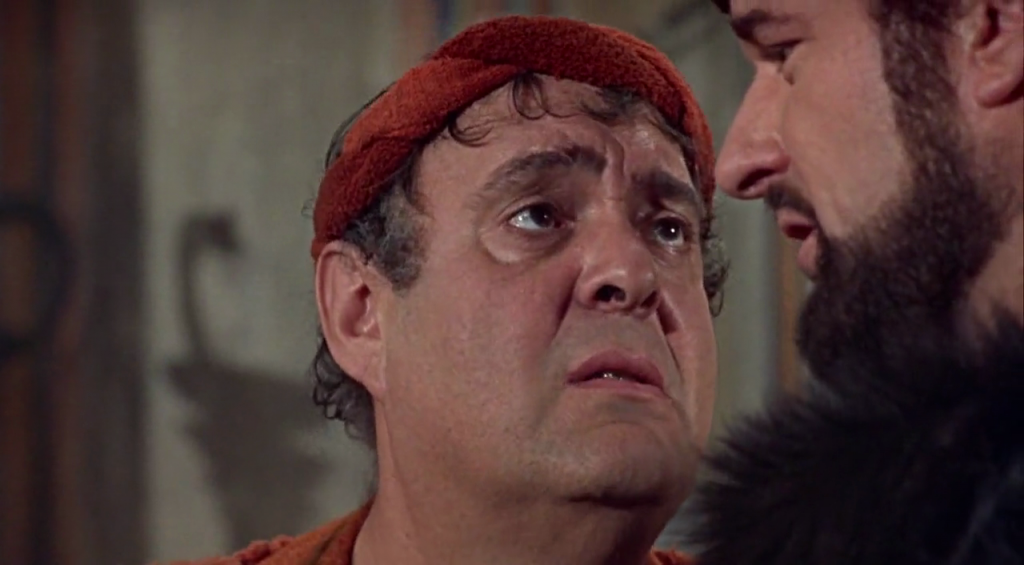
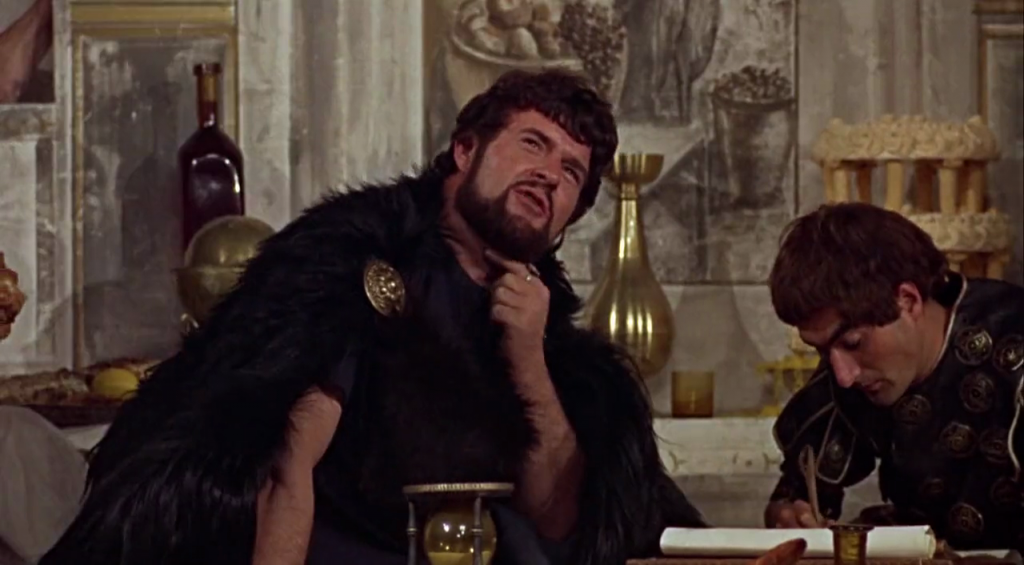
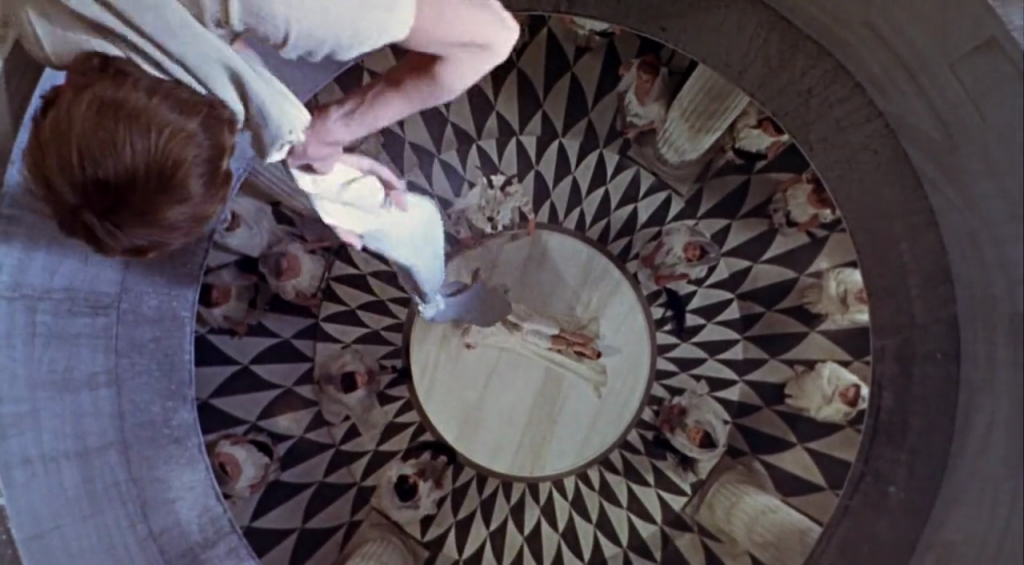
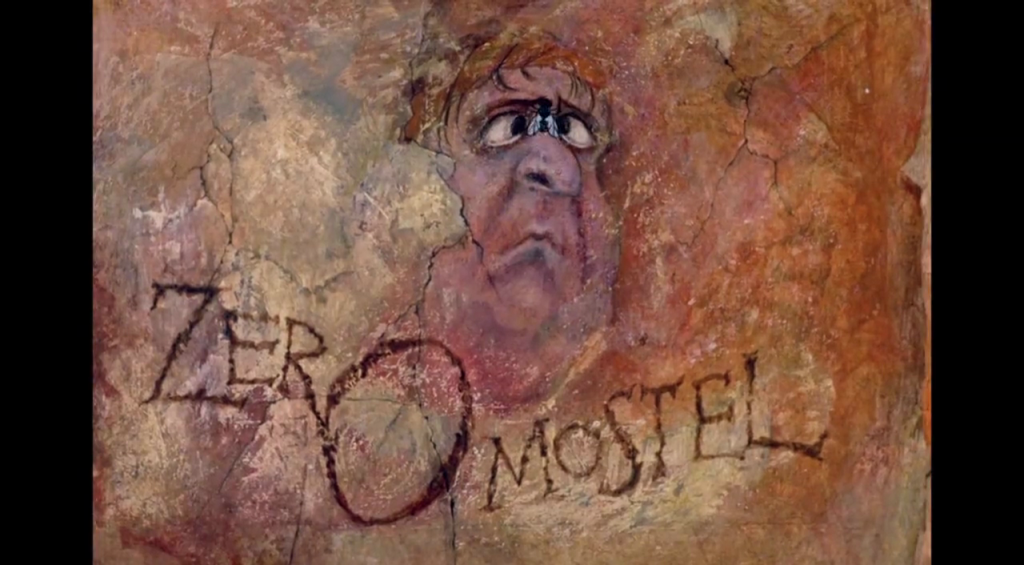
One thought on “Funny Thing Happened on the Way to the Forum, A (1966)”
Must-see (and holds up well on repeat viewings), as a fine example of an adaptation of a stage musical (as opposed to a musical written for the screen) – and for the performances.
This is a satisfying 90 minutes of entertainment that simply flies by each time I see it. As a musical, could it afford to be a little more of a musical, just because musicals usually are? In a way, yes, I suppose keeping one or two more of the songs cut from the original score would not have hurt. But, as is, it’s light and frothy – and funny!, so why quibble?
As for the treatment/depiction of women…being a broad (if you will) burlesque farce, that is perhaps the only genre that would and could excuse such presentation. We are told in the film’s brilliant opening number what to expect: “Something appealing, something appalling…”; “…nothing portentous or polite…”. Basically, we’re told anything goes, no character will be exempt from the vulgar, low comedy of the form, and that none of it is to be taken seriously.
As well, it’s a period piece, derived from a time not particularly on the side of women (it’s also largely set in a whorehouse) – so, in that context, it can be seen that the material is not meant to be a reflection of how the writers personally perceive women.
If this film were to be re-made today (God forbid), we would be hard-pressed (indeed) to find a cast so well-versed in the tradition of this kind of comedy. Not only does the material have to be genuinely witty (instead of gross or forced) but it demands that it be performed with expert timing and a full command of facial and body expression.
Luckily, this film is blessed with the likes of Mostel (especially!) – but he is met every step of the way by Phil Silvers, Jack Gilford, Keaton, Jessel, Hordern, Greene and Roy Kinnear. Mostel is more than fortunate to have such able support…but essentially this is *his* movie – and he shamelessly (which is appropriate) steals just about each second he’s on-screen.
This is among my favorite movie musicals.